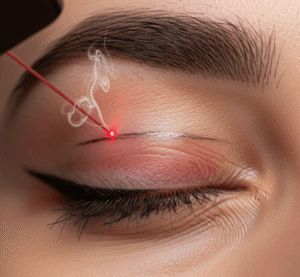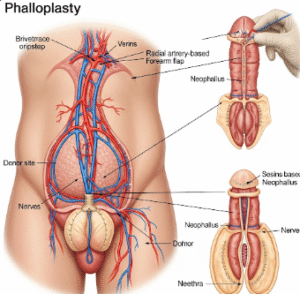Overview
A pinched nerve occurs when surrounding tissues — such as bones, cartilage, muscles, or tendons — apply too much pressure on a nerve. This compression disrupts the nerve’s function, causing pain, tingling, numbness, or weakness along the nerve’s path. Pinched nerves can occur in various parts of the body but are most commonly found in the neck, lower back, or wrists. While often temporary, untreated cases may lead to chronic discomfort or permanent nerve damage.
What is a Pinched Nerve?
A pinched nerve is a condition where a nerve becomes compressed or irritated due to mechanical pressure from nearby structures. It can affect both the central nervous system (spinal nerves) and the peripheral nervous system (nerves extending to limbs and organs). This pressure can impair nerve signaling, leading to symptoms that radiate outward from the compressed area.
Common sites of pinched nerves include:
- Cervical spine (neck) – may affect the shoulders, arms, and hands
- Lumbar spine (lower back) – may affect the legs and feet (sciatica)
- Wrist (carpal tunnel syndrome) – affects the fingers and hand
Symptoms
Symptoms of a pinched nerve vary based on the location and severity but commonly include:
- Sharp, aching, or burning pain
- Numbness or decreased sensation in the affected area
- Tingling or “pins and needles” sensation
- Muscle weakness near the nerve
- Radiating pain (e.g., from lower back down the leg)
- Worsening symptoms with certain movements or positions
- Neck stiffness or restricted mobility in spinal nerve compression
Causes
A pinched nerve can be caused by various conditions or mechanical factors, including:
- Herniated or bulging disc in the spine
- Bone spurs (osteophytes) due to arthritis
- Repetitive stress or overuse injuries
- Poor posture or prolonged sitting
- Obesity, which increases pressure on nerves
- Pregnancy (fluid retention and weight gain can compress nerves)
- Injury or trauma
- Tumors or cysts that press against nerves
Risk Factors
Several factors may increase the likelihood of developing a pinched nerve:
- Age-related degeneration (especially spinal wear and tear)
- Sedentary lifestyle or lack of core strength
- Heavy lifting or repetitive movements
- Previous spinal injuries or surgeries
- Occupations involving repetitive motion (e.g., typing, assembly line work)
- Chronic medical conditions such as arthritis or diabetes
- Pregnancy and hormonal changes
Complications
If not addressed promptly, a pinched nerve may lead to more serious issues, including:
- Chronic pain or persistent numbness
- Muscle atrophy from prolonged weakness
- Permanent nerve damage or scarring
- Loss of function in the affected limb or body part
- Increased risk of falls or mobility issues
- Psychological impact such as stress or depression due to long-term pain
Prevention
Preventing pinched nerves involves maintaining a healthy lifestyle and avoiding risk factors. Key preventive strategies include:
- Maintain good posture while sitting, standing, and sleeping
- Take frequent breaks during repetitive tasks
- Exercise regularly to strengthen core and support muscles
- Maintain a healthy body weight
- Use ergonomic equipment for work or home
- Stretch before and after physical activity
- Avoid heavy lifting without proper technique
- Stay hydrated and follow an anti-inflammatory diet
Treatment Options in Korea
South Korea provides state-of-the-art care for pinched nerve conditions, using both conservative and advanced treatment approaches. Common treatment options include:
Conservative Treatments
- Rest and activity modification: Avoiding activities that worsen symptoms
- Physical therapy: Customized stretching and strengthening programs to relieve pressure and restore mobility
- Medications:
- Nonsteroidal anti-inflammatory drugs (NSAIDs)
- Muscle relaxants or corticosteroids
- Hot/cold therapy: To reduce inflammation and relieve pain
- Chiropractic adjustments and acupuncture, offered in integrative clinics
- Ergonomic counseling: Guidance on posture, workstation setup, and movement techniques
Advanced Treatments
- Epidural steroid injections: To reduce inflammation in spinal nerve roots
- Nerve block procedures: For targeted pain relief
- Minimally invasive spine surgery: For cases of severe compression (e.g., microdiscectomy or foraminotomy)
- Endoscopic spine surgery: Offered at advanced neurosurgery centers for faster recovery and minimal scarring
- MRI and nerve conduction studies: Available for accurate diagnosis and personalized treatment plans
Specialized Care in Korea
Top-tier hospitals like Severance Hospital, Samsung Medical Center, and Seoul National University Hospital offer:
- Multidisciplinary teams of neurologists, neurosurgeons, orthopedic specialists, and physiatrists
- English-speaking staff and international patient services
- Rehabilitation and wellness centers for long-term recovery support
South Korea’s combination of high-tech diagnostics and patient-focused care makes it an ideal destination for safe, effective, and minimally invasive treatment of pinched nerve conditions.













